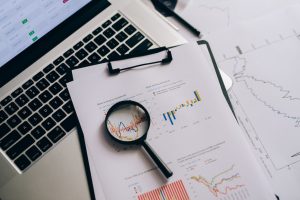How Global Oil Prices Could Influence Singapore’s Condo Market
Singapore’s condominium market is influenced by many global factors, and one of the less obvious yet impactful ones is the...
ECONOMY . BUSINESS . ENERGY
Workship for energy efficiency energy savings. Finance Energy

Rental deposit guarantees are changing how tenants and landlords interact within the rental market. Studies reveal that alternatives to traditional security deposits provide tenants with immediate financial relief while fueling local economies and reshaping the dynamics of rental markets. These guarantees offer a win-win scenario by improving liquidity for renters and ensuring property owners receive the necessary financial protections.

One of the most significant advantages of rental deposit guarantees is the increase in liquidity for tenants. Unlike conventional deposits, which tie up large sums of money for the lease term, rental deposit insurance allows tenants to use their funds for other necessities or investments. This system provides financial freedom, enabling individuals to allocate their money more effectively.
For example, rental deposit insurance ensures tenants no longer need to save for months to afford hefty upfront payments. Instead, they pay a smaller fee, preserving their savings for emergencies or lifestyle improvements. This shift benefits renters and stimulates local economies, as tenants have more disposable income to spend on goods and services in their communities (source: mietkautionsversicherung by DepositDirect).
The economic effects of rental deposit guarantees extend far beyond the rental market. By freeing up cash that would otherwise be locked in a landlord’s escrow account, tenants can contribute to businesses within their neighbourhoods. This increased spending creates a ripple effect, supporting small businesses and boosting job creation.
In many urban areas, businesses near rental-heavy neighbourhoods experience noticeable economic growth as tenants reinvest their savings into local dining, retail, and service industries. Additionally, landlords can use guaranteed rental income for property maintenance, renovations, or other local investments, further enhancing community development.
Rental deposit alternatives also play a role in fostering healthier rental market dynamics. For landlords, these guarantees provide assurance of compensation in case of damages or unpaid rent. This reliability reduces disputes and builds trust between landlords and tenants.
For tenants, the accessibility of rental deposit guarantees lowers the barrier to entry in competitive housing markets. It allows individuals, particularly those with limited savings, to secure housing more quickly. The resulting mobility increases housing options and promotes diversity in tenant demographics, enriching neighbourhoods culturally and economically.
While rental deposit guarantees offer numerous benefits, they are not without challenges. Critics argue that tenants may overlook the cumulative cost of premiums, leading to financial strain over time. Similarly, landlords may be concerned about coverage’s sufficiency in addressing extensive damages or unpaid rent.
However, as awareness of these guarantees grows, so do solutions to potential shortcomings. Enhanced transparency in terms and conditions and government regulations can help ensure fair practices. The rental market is gradually adapting, with more stakeholders recognizing the long-term value of deposit alternatives.
Housing affordability remains a pressing global issue, and rental deposit guarantees contribute to addressing this challenge. By reducing upfront costs, these guarantees make renting a viable option for more people. Families, students, and professionals alike can benefit from easier access to housing, fostering a more inclusive rental market.
In turn, cities with inclusive housing policies and rental deposit alternatives will likely attract a broader workforce. This strengthens local economies and improves residents’ overall living standards.
READ ALSO: Fueling Growth: Mortgages at the Crossroads of Economy, Business, and Energy
Rental deposit guarantees are more than just a financial product—they are a tool for empowerment. By enhancing tenant liquidity, boosting local economies, and reshaping rental market dynamics, these guarantees pave the way for a more accessible and equitable housing landscape. While challenges remain, their growing adoption signals a shift toward innovative and sustainable housing solutions.

Southlake, Texas, known for its upscale living and excellent amenities, is experiencing a dynamic shift in its new home market. Economic trends such as interest rates, employment rates, and regional economic growth are pivotal factors influencing this shift. These trends have significant impacts on home prices, demand, and construction rates, making it essential for potential buyers, builders, and investors to understand the current market landscape. For those interested, you can find many Southlake, TX new construction homes for sale that reflect these changing dynamics.
Interest rates are one of the most crucial factors affecting the new home market in Southlake. The fluctuations in mortgage rates over the past few years have played a significant role in homebuying activities.
Employment rates significantly affect the housing market, as job stability and income levels are directly linked to homebuying capabilities.
The broader economic landscape of the Dallas-Fort Worth Metroplex significantly impacts Southlake’s new home market. Regional economic growth attracts businesses and residents, creating a ripple effect on housing demand.
The interplay of low interest rates, high employment, and regional growth has a significant impact on home prices in Southlake.
The construction of new homes in Southlake is influenced by various factors, including land availability, regulatory conditions, and economic environment.
READ ALSO: Unveiling the Financial Shield: The Crucial Role of Cryptomixers in Safeguarding Fuel Investments
The new home market in Southlake, Texas, is shaped by a complex blend of economic trends. Low interest rates, high employment rates, and robust regional economic growth have collectively fueled increased demand, rising home prices, and active construction efforts. As Southlake continues to attract new residents and businesses, understanding these economic influences is crucial for anyone looking to navigate this dynamic market. By staying informed about these trends, potential buyers, builders, and investors can make more strategic decisions in the ever-evolving Southlake housing landscape.

The world of mortgages is a dynamic landscape, influenced by a myriad of factors that extend beyond the realms of real estate. As we delve into the intricate relationship between mortgages and the broader economic, business, and energy sectors, it becomes evident that these elements are interconnected in ways that significantly impact mortgage decisions and the overall dynamics of the real estate market.
The ebb and flow of economic trends play a pivotal role in shaping the mortgage landscape. Mortgage brokers (mortgagebrokerscalgary.org), as key players in this ecosystem, navigate the fluctuating tides of interest rates, inflation, and unemployment. Economic prosperity often translates into increased consumer confidence and a surge in mortgage applications, while economic downturns may lead to cautious lending practices and a decline in real estate activities.
The intricate dance between businesses and mortgages is a symbiotic relationship that shapes the real estate landscape. Businesses, both small and large, contribute to the demand for commercial spaces, influencing property values and the availability of mortgage financing.
In the complex web of mortgage considerations, energy prices emerge as an influential variable. Fluctuations in energy costs have a cascading effect on the overall economy, influencing consumer spending power and, subsequently, mortgage decisions.
READ ALSO: Economic Landscape and Business Dynamics
Mortgage brokers, as facilitators of real estate transactions, find themselves at the intersection of these dynamic forces. Adapting to the ever-changing landscape requires a keen understanding of economic indicators, business trends, and energy market dynamics. As the real estate market continues to evolve, mortgage brokers play a crucial role in guiding borrowers through the complexities of mortgage decisions influenced by broader economic, business, and energy considerations.
In this intricate dance, mortgage brokers act as navigators, steering clients through the multifaceted landscape of mortgages influenced by economic, business, and energy factors. Understanding these connections allows both lenders and borrowers to make informed decisions, fostering a resilient and adaptive real estate market.
In the realm of education, the role of economics often goes underestimated. However, it is crucial to recognize that the economy and education are deeply intertwined, and their relationship holds immense importance for individuals, societies, and nations as a whole.

Economics plays a pivotal role in the allocation of resources within the education sector. Government budgets, grants, and funding decisions are all subject to economic considerations. Efficient allocation ensures that schools and institutions receive the necessary resources, leading to improved infrastructure, better teaching materials, and enhanced educational experiences for students.
The economy significantly impacts the labor market and, consequently, the choices students make regarding their education. Economic trends and job opportunities influence decisions about fields of study and career paths. Understanding the economy can help students make informed choices that align with their career aspirations and economic realities.
The economy forms the macrocosm within which businesses operate. Fluctuations in economic indicators such as GDP, inflation rates, and unemployment levels directly impact the business environment. A robust economy with increasing consumer spending often creates a conducive atmosphere for businesses to thrive. On the contrary, economic downturns can pose challenges for businesses, compelling them to adapt, innovate, and strategize for survival.

Conversely, businesses serve as catalysts for economic growth. They generate employment, create value, and contribute to the government’s revenue through taxes. Startups and established enterprises alike contribute to technological advancements and productivity enhancements, further enhancing the overall economic landscape. Moreover, successful businesses can attract foreign investments, fostering economic globalization.
In today’s dynamic and interconnected world, the relationship between the economy and business has become increasingly vital. The economy provides the backdrop against which businesses operate, while businesses, in turn, contribute to the overall health and growth of the economy. This symbiotic relationship creates a complex web of interactions that shape the economic landscape.

Businesses, both small and large, are the engines that drive economic activity. They play a pivotal role in wealth creation, job generation, and innovation. By producing goods and services, businesses contribute to the overall GDP and enhance the standard of living in a society.
Businesses also create employment opportunities, providing individuals with income to spend and invest. Increased consumer spending, in turn, fuels demand, stimulates production and drives economic growth. As businesses expand, they often require support from various sectors, leading to a multiplier effect that generates further economic activity.
The global economy has been affected by the rise in businesses and the increasing number of people who are entering the workforce. The United States is a prime example of this. It is expected that this trend will continue for the next decade.

The effects of business on the economy can be seen in various ways. While some businesses are more beneficial to the economy, others may have negative effects.
The first and most obvious effect is an increase in employment. Businesses create jobs and that is good for the economy. They also generate income which can be used to pay taxes and purchase goods or services from other businesses.
Another major effect is an increase in trade. With increased trade, people are able to buy goods from other countries with ease which keeps their currency strong and helps them sustain a healthy economy.
Gold and silver businesses are important for the economy. When you buy gold and silver from trusted platforms like Goldcore, businesses can help to stabilize their finances and make long-term investments that will benefit the economy. Additionally, gold and silver businesses also help to create jobs in the local community as well as provide a source of income for those who work in them. Furthermore, these businesses can also provide a valuable source of revenue for governments, helping to boost their economies. As such, gold and silver businesses are playing an important role in helping to create economic stability around the world.

Gold and silver businesses have been an integral part of the economy for centuries. They are seen as safe investments, with the potential to yield returns in times of economic crisis. The impact of gold and silver businesses on the economy is far-reaching, from influencing employment levels to providing a hedge against inflation.
The gold and silver industry is an important source of jobs, both directly and indirectly. Mining companies employ workers to extract precious metals from the earth, while other businesses use these metals to create jewelry or coins. Additionally, gold and silver are used as a store of value by investors around the world, providing a steady stream of demand for these commodities.
In times of economic uncertainty, gold and silver can provide stability for investors who wish to protect their assets from market volatility or inflationary pressures. As such, gold and silver businesses can play an important role in mitigating financial risks during turbulent times.
Gold and silver businesses have the potential to significantly impact economic development in countries around the world. From providing employment opportunities to boosting GDP growth, gold and silver businesses can play an important role in helping nations achieve their economic goals.
Gold and silver prices can fluctuate rapidly, which can affect the profitability of your investments. Furthermore, there is always the risk of fraud or theft when dealing with these precious metals. Additionally, governments may impose restrictions on gold and silver transactions which could make it difficult to liquidate your investments quickly. It is important to carefully weigh all of these risks before investing in gold and silver businesses.
Money management for gold & silver purchases offers many benefits, including controlling costs, maximizing profits, and planning ahead for potential market changes. By understanding the current market conditions and using effective strategies, you can make sure you get the most out of your investments in gold & silver.
Businesses are the backbone of any economy. They provide the goods and services that fuel economic growth. They create jobs, generate income, and stimulate demand for products and services. Businesses also contribute to the development of infrastructure, technology, and other resources that enable economic growth.

Businesses that support economic growth can benefit in a variety of ways including increased sales, improved customer satisfaction, and greater access to resources. By investing in the local economy, businesses can ensure that their community has the resources needed for economic development. This will lead to increased opportunities for business growth and ultimately a stronger economy.

As the global economy, businesses, and energy landscape continue to evolve, the towing industry is adapting to the changes to meet the demands of the market. In this article, we will explore the changes and challenges faced by towing businesses like tow truck Santa Clara and how they are adapting to the new economic, business, and energy landscape.
The global economy has experienced significant changes in recent years, with emerging markets and new technologies leading to increased competition. These changes have affected the towing industry, which has seen a decline in traditional towing services. However, new opportunities have emerged in the form of electric vehicle (EV) charging, parking enforcement, and transportation of alternative fuel vehicles. The industry has had to adapt to the new realities and embrace these opportunities to remain competitive.
The business landscape has also undergone significant changes, with the rise of e-commerce, sharing economy, and online platforms. These changes have affected the traditional business models of the towing industry, which have had to evolve to remain relevant. The industry has had to embrace digital marketing, online booking, and customer service to meet the demands of the market. Additionally, partnerships and collaborations have become essential in the industry, with companies pooling resources to provide better services to customers.
The energy landscape has also undergone significant changes, with the rise of renewable energy and the increasing demand for environmentally friendly solutions. The towing industry has had to adapt to these changes, with companies investing in EV charging infrastructure and transitioning to alternative fuel vehicles. The industry has also had to adopt eco-friendly practices, such as using biodegradable fluids, to reduce its impact on the environment.
The towing industry faces several challenges in adapting to the changing landscape. Some of these challenges include:
The industry has had to keep up with technological advancements to remain competitive. This has required significant investment in technology, training, and equipment to provide better services to customers.
The industry is also facing increased safety and environmental regulations, which have increased the cost of doing business. Companies have had to invest in safety equipment and training to meet the new regulations, which has put pressure on profit margins.
Customer expectations have also increased, with customers expecting faster response times, better customer service, and more eco-friendly solutions. The industry has had to adapt to these changing expectations to remain competitive.
To adapt to the changing landscape, the towing industry has had to embrace new technologies, adopt eco-friendly practices, and partner with other companies. Some of the strategies used by the industry include:
Alternative fuel vehicles are becoming more and more popular as people embrace the benefits of using cleaner, more sustainable energy sources to power their cars. These vehicles use alternative fuels such as electricity, hydrogen, natural gas, or biofuels instead of traditional gasoline or diesel.
The towing industry is embracing advanced technologies to stay competitive in the changing economic and business landscape. By adopting these innovations, towing companies are able to operate more efficiently, provide better customer service, and reduce their impact on the environment.
the towing industry is adapting to the changing economy, business, and energy landscape by embracing partnership and collaboration. By working together with other businesses and industries, towing companies can stay competitive and provide better services to their customers while also promoting sustainable practices and contributing to the community’s overall well-being.
Read also: How Global Economy Affects Businesses
The towing industry is an integral part of the transportation sector, providing essential services to individuals and businesses. The industry faces numerous challenges as the economy, businesses, and energy landscape continue to evolve. The increasing demand for environmentally friendly solutions, changing business models, and economic uncertainty have pushed the industry to adapt to the new realities. Cleveland towing companies are adapting as well, increasing their outreach practices and marketing efforts to generate more business. They are also looking at how they can bring in more revenue while reducing costs and emissions.The bottom line is that the industry must evolve in order to keep pace with changing trends – now and in the future.
The global economy is an ever-changing landscape that has a great impact on businesses of all sizes. It is the sum total of all economic activity taking place around the world. Its movements can have both positive and negative effects on businesses.

By understanding the global economy, businesses can better anticipate economic trends and create effective strategies to maximize their success. Understanding global markets and trends is a key part of reaping the benefits of globalization. Businesses can better anticipate economic trends and create effective strategies to maximize their success.

Customers (individuals/families, companies) can ‘deposit’ their money with the bank. In this way, in a sense, they lend their money to the bank. In exchange, they receive interest from the bank. There are different types of deposits, such as sight deposits, savings deposits, term deposits, and certificates of deposit.
The banks then convert these deposits into loans to finance the needs of individuals and households, businesses, and the government.
Anyone who borrows money from the bank pays interest. This is because the bank provides him with a service, namely the provision of a certain amount for a certain period of time. Even companies like Advanceloan are legitimate providers of loans for interest.
This activity of the banks makes optimal use of all funds because supply and demand are matched, and the economy becomes more efficient. But it is of course exceptional that deposits and loans correspond perfectly with each other. In other words.dat the deposits are converted before becoming loans.
For the bank, there are certain costs associated with the conversion of deposits into loans. First and foremost, there is the cost of the work tools. This includes personnel, IT systems, or the distribution network.
ALSO READ: Why Does An Economy Have To Grow?
In addition, costs are also incurred due to the risks that the transformation system entails. There are three categories of risks:
A bank can choose to take the risks for its own account. For example, it will ensure that it has sufficient equity or that its liquidity margin (that is, the extent to which it can meet its short-term payment obligations) is sufficiently high.
In addition, the bank can also choose to hedge for those risks. One of the possibilities is a swap operation such as an interest rate swap. In addition, the fixed interest rate is converted into a variable interest rate through various transactions and thus the interest rate risk is eliminated. But of course, there is a cost associated with this hedging of the risks.
Economies don’t have to grow. But often they just do it. When understood correctly, growth simply means more quality of life.

Overall growth can have two sources. These are the increasing use of production factors such as labor, capital, energy, etc., and increasing efficiency. The main driver of efficiency is technical progress. This is not created in a single country, but through countless innovations worldwide. That is why countries only have no long-term growth if their economy cannot use global technical progress and the use of production factors decreases, be it because of wrong incentives or because their population is shrinking.
Bitcoin is among the cryptocurrencies that businesses around the world are using today. This cryptocurrency is gaining popularity as more businesses and individuals use it for daily transactions. Reading fxview reviews can provide you with information regarding multiple trading.
Since there are no intermediaries involved in Bitcoin transactions, transactions incur lower fees. So you can save money when paying with bitcoin than when using credit cards. Essentially, you eliminate bank fees when paying with this cryptocurrency.
You can wait for days for the bank to complete a credit card payment. In some cases, sending money through the bank can even take weeks. Bitcoin payments, however, are almost instant.

If someone pays for a service or product with bitcoin, they cannot reverse the transaction. That’s unlike other payments like credit cards. With credit cards, a person can use chargebacks to reverse the transaction. And many scammers take advantage of this opportunity.
Using Bitcoin allows a company to trade internationally more efficiently. That’s because a company can send and receive bitcoin across borders. Thus, this virtual currency removes trading restrictions and barriers. Ultimately, Bitcoin allows a business to accept payments from anywhere in the world at any time.
When a business accepts bitcoin payments, it gains a competitive advantage over the competition. In this way, a company can attract more customers or clients who want to pay with cryptocurrencies.
People from all walks of life are embracing bitcoin and other virtual currencies. Therefore, companies should monitor the development of this technology and consider how to make better use of it. Any business owner who doesn’t know much about Bitcoin and other digital currencies should learn how to use them.
The number of companies accepting Bitcoin is constantly growing. And this trend will most likely continue over the years. This is because using this virtual currency brings benefits to a business in many ways. As Bitcoin acceptance and usage increase, businesses will interact between digital coins and cash. That’s because more and more people are turning to Bitcoin for its advantages over fiat money. Accepting bitcoin payments can therefore give a business a competitive edge over its competitors. So any company that wants to remain competitive should start using Bitcoin early.
New business owners have many goals when they start out. This includes speedy growth and recognition for their fledgling business. But overnight success is often not the standard. There is no special “special sauce” to add to the recipe for instant results, and nothing is guaranteed.
With a small business looking to grow, it’s important to have the right players at the table. They have to be people who aren’t afraid to roll up their sleeves.

You need to stream instead of trying to acquire new customers. Focus your attention on the core customers you already have. You can do this by implementing a referral or loyalty program, or trying marketing strategies based on past buying behavior to encourage repeat business.
People use economics to understand and analyze human behavior along with the decisions made by them and the level of impact it has on the overall economy of the nation. Business refers to the process in which goods and services are exchanged between entities and people, usually in exchange for money.

Economics and business are closely related due to the complex nature of the global market and economies. Oftentimes, people consider the two the same. Both are branches of social sciences. However, there are some strong differences between them. Nonetheless, they go hand in hand.
While the business provides goods and services to the customer economy through the supply and demand relationship, it decides how much of the goods to produce.
There are unique challenges and issues in building a small family business that are different from other business models. Nonetheless, with the right mindset and genuine willingness from everyone involved to share responsibility, the family business model has great potential.
As with any leadership model, the people involved must share the same vision and values for the proposed or existing business. Because conflicting visions and values will most likely lead to conflicts and problems and make the development of the company more difficult.
A family business can be structured in different ways. Each structure has its pros and cons and should be evaluated in light of your specific circumstances. For Tow Truck in San Jose business, you should discuss this with a specialist lawyer specializing in corporate law and/or other experts. Find the experts in the towing industry on the map – https://maps.app.goo.gl/BiekAWaRwofofzqJ7.
It is best to define the tasks and responsibilities right from the start.
If you don’t do this, responsibilities can become blurred and mixed up very quickly. The efficiency and effectiveness of the organization suffers as a result, because no one knows which topic to address to whom.

It may seem that it is sufficient to verbally clarify the necessary agreements based on family/friendship relationships. It is always good to put all business matters in writing.
Perhaps one of the most difficult tasks, but an absolutely necessary one.
All emotional aspects that can arise in the form of a family business should be avoided as much as possible. The company can only function if everyone involved agrees to deal sensibly and realistically with the upcoming challenges and problems. Otherwise, emotions and “family burdens” can creep in and throw the company down the wrong track.
The relationships between business partners should always be honest and open. This is even more important in a family company. Without clear and transparent communication, things can go wrong very quickly. All partners should see themselves as part of a corporate culture “Code of Conduct” in which differences of opinion can and may be clearly expressed without getting caught up in arguments or other paralyzing conflicts.
One thing is certain. By using digital tools, companies can monitor workflows and communication processes and improve operational efficiencies. Due to the ever more dynamic market development, companies are subject to ever shorter production cycles. So, the need for efficient internal and external communication systems is constantly growing. Collaboration platforms have turned out to be ideal tools for managing such processes in companies.

In the planning phase, you must take into account that the change has the function of leading the company to satisfactory results. The primary focus should not be to increase sales. Above all, it is to ensure that the end customer is as satisfied as possible. The customer experience is monitored using digital tools and metrics that add value and drive tangible improvements in internal and external relationships.
Everyone is talking about economic growth but what does that actually mean? In short, it is how much the value of all goods and services produced in a country increases. This increase in value is measured over a period of one year. In the economic system, growth is a given. If you look back a few centuries, you can see where this comes from. Living conditions improved as economic output grew. Thus, wealth and economic growth became an attached pair.

Even today, technology is changing the way you live. For example, your health and longevity increase as a result of medical innovations. Innovations also make your lives more convenient. For example, when you switch from bicycles to e-bikes or order pizza via app instead of cooking ourselves. Doesn’t sound like a huge hit, but many small things are also innovations. Therefore, technology has a role to play in economy.
If you plan to become self-employed with a completely new gas station, you often have more hurdles in front of you than is already the case with this market situation.
On the one hand, you have to find a plot of land on which you can run a business. In particular, you need to build a gas station with pumps and large gas tanks. On the other hand, you have to make very large investments to build the complete system. If you are not afraid of either of these, you can bravely start and set up a completely new gas station.
One advantage is that you will already find the basic infrastructure here. Then, you “only” have to carry out modernization measures. Rebuild the system according to your ideas. If you decide on a company succession, you will benefit from well-established processes, trained employees and a solid customer base.
Entrepreneurs are an exceptional species. Entrepreneurs, mainly innovative entrepreneurs, are important to the effectiveness of the economy. Furthermore, businesses open doors for job openings which can help in economic growth.
Businessmen speed up structural change. They do this by substituting established, sclerotic corporations.
Entrepreneurs enhance economic growth: Entrepreneurs do this by presenting products, services, and innovative technologies.
Increased competition from entrepreneurs dares to challenge existing corporations to become more competitive.
Businessmen offer new job opportunities for both short and long term.
Entrepreneurial activity increases the productivity of corporations and economies.
Businesses are technical-organizational economic units. They provide goods or services to cover needs and offer them on markets.
Companies, on the other hand, are legal economic entities for the provision of goods and services.
People often explain the connection between the terms business and company is quite different in theory and practice. The term “company” refers more to technical and organizational aspects. The term “company” refers to legal and financial aspects.
Businesses as technical-organizational economic units produce material goods or services.
Great entrepreneurs have the ability to change the way you live and work. When successful, their innovations can improve living standards, and in addition to creating wealth through entrepreneurship. They also create jobs and contribute to a growing economy.
So entrepreneurship is important for a number of reasons, from promoting social change to promoting innovation.
New products and services that entrepreneurs create can make a cascade effect in which they stimulate related businesses or sectors that need to support the new business. Thus, this promotes economic development.
Future development efforts in underdeveloped countries will require robust logistical support, capital investment, and skilled labour. From highly skilled programmers to construction workers, entrepreneurship benefits a large part of the economy.
The market economy is an inconceivable reality without the existence and development of business, of activities with a practical purpose.
A businessman is a person who carries out and initiates a set of activities. The businessman must characterize the innovation and risk. This way, he can achieve personal and material satisfaction. You can say that only those businessmen who are ready to face the pragmatic realm of the business world can succeed.
The roles that the businessman can play, in the conditions of the market economy, require the formation and continuous modelling of his behaviour. In most cases, the self-improvement of the psycho-socio-professional training.
Companies play a central role in a market economy. As producers of goods and services, they offer consumers the goods they ask for.
Economic growth and a responsible corporate culture can be decisive factors in establishing human rights. You can enable people to live in dignity, for example by fighting poverty. This often goes hand in hand with access to education and health. It goes as well to the exercise of a large number of other economic, social and cultural human rights.
High prices for fuel and food combined with the world’s financial crisis are a triple hit that threatens the survival of the poorest people among them are millions of children. Children suffer great consequences from long term economic shocks and many do not fully recover. They suffer from malnutrition as a result of high food prices. This is a lost potential that will never be regained. This financial crisis is becoming a human crisis.

This will have ill effects the economy. Developed countries should interfere. They should help weaker countries that are slowly slipping to the edge. Crisis demands a quick response. In the poorest countries, one event can tip the balance from gaining ground to falling behind. The crisis in food and fuel hit the poorest economies. We work with other crisis to prepare for crisis. When emergencies strike, we respond. When the financial crisis erased savings, jobs, and security other countries step in to support economic stability by committing recovery efforts.
Energy is the ability to do some work. It takes energy to move an object from one place to another, to walk or even heat our food. Energy is everywhere. A fuel is a type of stored energy. Burning fuels releases stored chemical energy, which becomes useful thermal energy.
There are three categories of fuel, nonrenewable, renewable and inexhaustible. Fossil fuels such as oil, coal and natural gas are nonrenewable energy sources we commonly use. They’re made from animal and plants that lived and died in oceans and swamps millions of years ago. Eventually the decayed animal and plants turned into oil, coal and natural gas fossil fuels. Because it takes millions of years for fossil fuels to form, these sources of fuels are called nonrenewable which means it’s not possible for us to create them in a way that would make them ready for us to use soon.

The second category of fuel is called renewable, which means we can replace the resource at the same rate we consume, or use it. Biomass is an example of renewable energy source. Biomass is any material that was recently living or made from organic, or living materials that can be burned. Examples of Biomass are wood, paper, and crop waste. Biomass is readily available. The third category of energy sources like the sun, moving wind, or daily motion of the ocean waves are called inexhaustible. We can collect and use energy from these sources all the time without ever using them up. However, it is often very expensive to make collectors of energy from inexhaustible sources and we cannot always get it where we need it.
All around the world we depend on fossil fuels for our everyday lives. It is widely used in the economy, businesses and households. Oil is the primary source of energy. It accounts for 40% of the world’s energy consumption. To burn all the oil, it has to go through a process. This process harms the environment and every living thing on it. Fresh water is used to process oil. Out of all the fresh water in the world, only half of it is accessible. It takes 4 barrels of fresh water to make a barrel of oil. Fresh water and natural gas are used to refine the oil. The remains are dumped back into the water. This in turn adds toxic chemicals to the water which can be harmful to any living creatures depending on water. When this oil is burned it also releases CO2 into the air. The CO2 traps the heat inside the atmosphere heating up the earth, affecting everyone. Our need for oil has become so important that we are destroying our only home. But we can stop this and make oil use sustainable. There are many ways we can do to protect earth.

Here are some ways:
Because the earth is a beautiful place and the only one we’ve got. Let’s do are part as stewards of mother earth.
The top two components of global trade are crude and refined petroleum. Oil is both the life blood and poison of the global economy. So how important is oil and gas for the economy?

If we think about the control of resources, oil and gas itself provides power and influence for those that control it. From this power and influence shapes political agendas, economies and the market space. Oil and gas is not just energy world, it’s clearly one of the most important sources of energy for the world today. It also happens to be the most important feedstock for many components that are manufactured and enjoyed by many of us today that we really to not pay much attention to.
However our reliance on oil and gas in energy purposes is continously shrinking. What’s alarmimng is, there aren’t any known alternative forms of energy that can fully replace oild and gas. This makes the demand for this enrgy sources go up in prices. The demand of oil and gas will continue to grow. If prices of crude and oil increases, it depresses the economy while simultaneously adding to inflation. More money spent on oil means lustful spending on everything else. In the other hand weakening demand will cause the price to start falling at which point, oil becomes a powerful reflationary force.
It is important to conserve fossil fuels for the benefit of the next generations.
Renewable resources of energy. These are energy sources that can be used repeatedly. We can get renewable energy from the sun, wind and water.

Non Renewable resources which once completely used, takes a lot of time to be formed again. Good examples of these are coal and petroleum.
There are inexhaustible resources that are unlimited or abundant and are unlikely to get exhausted by human activities. Examples of them are windmills, sunlight, soil and many more. Fossil fuels such as coal and petroleum are exhaustible. They take millions of years to form from planet and animal remain. However, necessary that we use these fuels judiciously and only when absolutely necessary. This is called conservation of energy.
We should always apply the 4R’s in conserving.
Our economy relies heavily on fossil resources such as oil, natural gas and coal. This is not at all sustainable. Many are trying to transition to a bio based economy making use of renewable resources. Bio Economy is using resources that can be replaced. This makes use of organic materials such as plants and some organism. However, using this requires innovation, joint efforts and cooperation. With enough research and education, we can slowly achieve this.

Here are some ways we can achieve this.
Many businesses are slowly moving to the use of green energy. They see this as a move to attain a growth that is centered to the people and the environment. This transition is better for every economy and best for all that exist on earth. The use of clean energy is being introduced to many business sectors. The use of energy and fuel is implanted in the daily lives of human being. It is responsible powering homes, factories, hospitals, transportation and many more. The use of energy and fuel is in fact an important element for economic growth. Fossil fuel still is the most common source of energy. Yet this causes pollution to our planet since it emits at least 75% of greenhouse gas emissions. The use of renewable energy is more promising since it will minimize the risk and it provides a wide dimension of opportunities for the economy and most importantly for the world to thrive.
The price of fuel this year had been constantly changing. Sometimes it goes very high and sometimes low. During the start of the year, the rate per gallon in the United States was at $2.58. After 3 months it dropped down to 31% or $1.77 a gallon on April 2020. Then again went up 24% on July of the same year. This holidays the average price of gas by the gallon is at $2.22.

There are many factors that can cause the up and down in fuel prices. For this 2020 its fluctuating price was caused mostly because of the nation’s response to the pandemic. This was mostly the reason of its rapid change, and it is being unpredictably volatile. High Fuel prices are directly affected by the increase in crude oil prices. Crude oil accounts for at least 56% of the rate of regular gasoline. The remaining percentage will cost for distribution and some operational expense such as marketing, refining, and taxes. Oil prices directly affect the price of regular gas.
Coal, natural gasses and oil are non-renewable sources of energy. They are also known as fossil fuels. A large percentage of these non-renewable sources are globally used as the main energy source that people consumes.
Plants, and other decomposing materials such as dead animals and the like are main sources of fossil fuels. They have existed since the beginning of time powering life here on earth. They are very valuable because it takes thousands of years to convert as an efficient source of energy. As of now they are the most accessible and cheapest source of energy because of this fossil fuels are continuously and indiscriminately being exploited. It’s being consumed at a fast rate. This in effect will impact greatly our environment.

Economies around the world use this form of energy and many find it difficult to switch to another form of energy because it is expensive and complicated.
We should shift gear because of its effects and implication to our ever-changing world. As stewards of the earth we are responsible for the future. We should all start by being responsible and accountable energy consumers.

Singapore’s condominium market is influenced by many global factors, and one of the less obvious yet impactful ones is the price of oil. While Singapore doesn’t produce crude oil or rely heavily on oil for domestic power, fluctuations in global oil prices can still ripple through its economy in surprising ways. One of those ways is through the cost of construction and, ultimately, housing prices.
Oil prices affect a wide range of industries, and construction is no exception. Machinery used in construction sites runs on fuel, which becomes more expensive when oil prices rise. Transporting materials to and from sites also incurs additional costs. These increases in operational costs can add up quickly, especially in a land-scarce and highly urbanized city like Singapore, where almost every piece of construction equipment and material must be imported. Some buyers are even turning to Thomson View reviews to better understand how such economic factors might impact future property value and development timelines.
Contractors facing higher fuel and logistics costs may pass those expenses on to developers. In turn, developers may incorporate these additional costs into the pricing of their new condo units. So, while oil prices might not be something buyers track closely, they can have a downstream effect on the cost of a new home.
Many construction materials have oil-dependent supply chains. For example, producing and transporting steel, cement, and glass all require significant energy input. Additionally, global supply chains can become increasingly strained, potentially leading to delays and further price hikes.
Singapore imports most of its construction materials. When global oil prices rise, shipping costs from countries such as China, Malaysia, and Indonesia can increase. This not only raises the price of materials but can also slow down delivery times, affecting project timelines and adding financial risk for developers.
Higher oil prices can also influence broader economic sentiment. If global energy costs surge, inflation may rise, and central banks could respond by raising interest rates. For property buyers in Singapore, higher interest rates mean more expensive home loans. This could cool the demand for new condos, putting pressure on developers to offer more competitive pricing.
On the other hand, if oil prices stabilize or fall, inflation may ease, and borrowing costs remain attractive. This could spur more property investment, especially from foreign buyers who view Singapore as a stable and attractive market.
Oil prices are often seen as a barometer for global inflation. When they rise sharply, it often triggers a chain reaction: higher transportation costs, increased prices for goods, and reduced consumer spending power. In Singapore, which is heavily dependent on imports, this effect is magnified.
If consumers are spending more on essentials like food and fuel, they may have less to allocate towards housing or property investment. This can lead to softer demand, which might slow down price growth or even cause prices to dip in some segments of the market.
Conversely, when oil prices are low and stable, confidence tends to rise. Consumers and investors feel more secure, and developers may push forward with new launches, relying on continued demand. In such an environment, property prices can climb steadily, assuming other economic indicators remain favorable.
While oil prices do have an impact, Singapore’s condo market has shown resilience through various economic cycles. Government policies, land supply, interest rates, and foreign investment rules often play a bigger role in shaping long-term trends.
However, oil remains a variable that can amplify existing trends. For example, during a building boom, higher oil prices can lead to construction cost overruns. In a slower market, those same cost increases might cause developers to delay or cancel projects.
In short, while oil prices are just one piece of a complex puzzle, they can influence the condo market in meaningful ways—especially when combined with other economic pressures.
Global oil prices might seem far removed from Singapore’s gleaming condo towers, but they’re more connected than they appear. From construction costs to supply chains, interest rates to consumer sentiment, the price of oil feeds into the housing equation at multiple levels.
For buyers and investors, it’s worth keeping an eye on energy markets—not just for what they say about fuel prices, but for what they hint about broader economic conditions. In a world where everything is interconnected, even something as distant as an oil well can impact the price of a condo unit in the heart of Singapore.

U.S. oil production may have peaked, with crude prices climbing to $59.56 per barrel. Meanwhile, tech stocks are driving economic growth. The interplay of energy and business is shaping markets in May 2025.
CNBC reports that Diamondback Energy’s CEO warns of declining U.S. oil output due to low prices. This shift threatens America’s status as the top fossil fuel producer. Crude oil prices rose 4%, but the World Bank notes a 6.8% drop in the energy price index, signaling volatility.
Tech giants like Nvidia are powering a stock market rally, per Yahoo Finance. The S&P 500’s gains reflect confidence in AI and chips, a key economic driver. PTT’s Q1 2025 net income doubled, thanks to rising commodity prices, showing energy firms can still thrive.
Key trends include:
As oil falters and tech soars, the economy is at a crossroads, with energy and business in sharp focus.
The rise of AI powered trading has significantly transformed the world of finance and business, showcasing the potential of cutting-edge technologies to drive economic growth. As businesses and economies continue to embrace AI and other new technologies, the way we conduct transactions, analyze data, and make decisions is evolving at a rapid pace. These advancements enable organizations to achieve greater efficiency, enhance decision-making processes, and ultimately fuel long-term growth.
Artificial Intelligence (AI) has become a powerful tool for improving operational efficiency in various industries. By automating tasks, analyzing large datasets, and providing valuable insights, AI helps businesses make faster and more informed decisions.
In particular, AI-powered trading platforms enable investors to execute trades more efficiently and with higher accuracy, enhancing their ability to navigate the volatile financial markets. These tools have revolutionized how businesses approach trading and investments, leading to more precise strategies and risk management.
Innovation is at the heart of modern business, and AI, along with other emerging technologies like blockchain, cloud computing, and the Internet of Things (IoT), is enabling companies to push the boundaries of what’s possible.
AI-powered tools assist in everything from personalized marketing campaigns to predictive analytics that help companies understand customer behavior.
These technologies foster an environment where businesses can develop new products, services, and solutions that align with market demands, driving economic growth and creating new opportunities.

One of the most significant impacts of AI and technology is on startups and small businesses. With AI-powered tools, small businesses can now access the same advanced technologies that were once only available to larger corporations.
Whether it is about automating customer service to optimizing marketing strategies, AI helps level the playing field, allowing smaller players to compete in a global market. This democratization of technology helps foster entrepreneurship, drives innovation, and stimulates local economies.
AI powered trading is revolutionizing the financial sector by offering highly advanced algorithms capable of making real-time decisions based on massive amounts of data.
These trading systems can execute transactions faster and more accurately than human traders, offering significant advantages in terms of profitability and risk management. The ability to predict market trends and react to changes quickly allows businesses to maintain competitive edges in a fast-paced environment, contributing to more stable and efficient financial markets.
South Korea has been aggressive in controlling public data access and usage in line with data-driven decision-making. Sources such as infonowkorea claim that the nation has put in place a disciplined system whereby companies must pay “information usage fees” for gathering and using public data under control by governments. This strategy guarantees the appropriate use of data and creates an income stream to help the digital infrastructure grow even more.
Companies pay a cost depending on the type, amount, and sensitivity of the public data they use for business operations, analysis, or product development—especially in industries including finance, logistics, and smart energy. Government agencies like Statistics Korea or the Ministry of the Interior and Safety handle the data sets, so collecting these payments.
 The Method of Cashing Out
The Method of Cashing OutOnce gathered, this information usage fee is not just combined into a broad budget. A part is “cashed out” and given back to the governmental agencies who first gathered and kept the records. This concept generates a self-sustaining ecosystem of data management and innovation and pays agencies for generating premium, in-demand data.
The consequences on the digital economy of South Korea have been noteworthy. Through data access monetization, the government guarantees public sector pay and promotes private sector development simultaneously. Particularly startups and tech companies gain from a consistent flow of trustworthy public data they can apply for artificial intelligence training, market research, and the creation of smart technologies—including energy industry breakthroughs.
This “cashing out” approach is a clever mix between control and innovation as South Korea drives toward a hyper-connected, smart economy. It guarantees data is valued, handled, and reinvested sensibly, therefore providing a possible model for other countries negotiating the complexity of the digital age.
Global oil demand is expected to hit record highs in the coming years, driven by economic growth and evolving energy needs. The volatility of fuel prices, influenced by geopolitical tensions, supply chain disruptions, and shifting policies, makes energy trading a complex landscape. AI is now at the forefront, revolutionizing fuel markets by enhancing price predictions, risk management, and efficiency.
 AI-driven trading is reshaping energy markets by processing massive amounts of data in real-time. Unlike traditional trading, where human analysts make decisions based on historical data and market trends, AI algorithms can analyze patterns, predict price movements, and execute trades within milliseconds.
AI-driven trading is reshaping energy markets by processing massive amounts of data in real-time. Unlike traditional trading, where human analysts make decisions based on historical data and market trends, AI algorithms can analyze patterns, predict price movements, and execute trades within milliseconds.
Fuel prices are highly unpredictable, influenced by factors like political instability, weather changes, and supply-demand imbalances. AI models, trained on vast datasets, detect patterns humans might miss. These models use machine learning to accurately forecast price fluctuations, helping traders make informed decisions.
For instance, AI-powered trading algorithms analyze crude oil inventories, refinery outputs, and real-time shipping data to predict price changes before they occur. This predictive capability gives traders a competitive edge, reducing financial risks and maximizing profits.
Manual trading has its limitations. Decisions take time, and market conditions may have shifted by the time a trader reacts. AI eliminates these delays. Automated trading systems execute trades instantly, ensuring traders capitalize on favorable price movements before the opportunity vanishes.
Additionally, AI reduces the risk of human errors. Emotional trading, which often leads to losses, is minimized since AI operates based on data, not speculation. This results in a more stable and efficient trading environment.
Energy trading is inherently risky due to price volatility and regulatory changes. AI enhances risk management by assessing market conditions and predicting potential downturns.
AI-powered risk assessment tools analyze past market crashes and apply that knowledge to current data. By detecting early warning signs, AI helps traders and energy firms mitigate losses before a crisis unfolds. Moreover, AI models assess geopolitical risks, such as conflicts or trade restrictions, and calculate their potential impact on fuel prices.
The fuel industry relies on a complex supply chain, from oil extraction to distribution. Delays in transportation, refinery shutdowns, or unexpected demand spikes can disrupt markets. AI helps streamline these processes by optimizing logistics, predicting supply shortages, and recommending alternative routes.
Fuel suppliers can ensure timely deliveries and avoid unnecessary price hikes by integrating AI-driven insights. Traders also benefit from this real-time data, allowing them to adjust strategies based on current supply chain conditions.
Despite its advantages, AI in fuel trading comes with challenges. Algorithmic trading can sometimes amplify market volatility, leading to sudden price swings. There are also concerns about market manipulation, where high-frequency AI traders dominate the market, which disadvantages smaller traders.
Regulatory bodies are working to ensure fair practices in AI-driven energy trading. Transparency in AI algorithms is crucial to prevent unethical trading practices that could destabilize markets.
READ ALSO: How the Best Forex EA Impacts the Global Economy and Business Operations
As AI technology advances, fuel trading will become even more data-driven. Integrating blockchain with AI may add an extra layer of security and transparency. Additionally, as the world shifts toward renewable energy, AI will be key in optimizing trading strategies for sustainable energy sources.
Energy traders who adopt AI-powered trading solutions will gain a competitive edge in this fast-evolving market. By leveraging AI’s ability to analyze complex data and make rapid decisions, the fuel industry will continue to move toward a more efficient and intelligent trading landscape.
The world is undergoing a significant shift in how energy is produced and consumed. As fossil fuels continue to be scrutinized for their environmental impact, renewable energy sources like solar, wind, and hydroelectric power are gaining more traction.
Fuel prices have been fluctuating dramatically due to geopolitical tensions and supply chain disruptions. Countries are now more focused on energy independence, and there’s been a push toward renewable energy to combat rising costs and reduce reliance on oil.
The energy transition is changing how businesses approach their energy needs. Companies are investing in renewable energy sources to future-proof their operations. For the economy, this shift means new industries are emerging, while traditional energy sectors may face decline.

OPEC’s decision to reduce oil output has sent ripples through the global economy. Oil is a key commodity that affects everything from transportation to manufacturing. These cuts have led to a surge in oil prices, increasing inflationary pressures worldwide and raising concerns about the cost of living for millions. Governments are scrambling to implement policies to cushion the impact on their citizens.
Businesses, particularly those reliant on transportation and logistics, are feeling the squeeze. Higher fuel costs have pushed many companies to either pass the additional expense to consumers or absorb the costs, affecting profit margins. Industries like aviation, shipping, and automotive manufacturing are especially vulnerable, with some already reporting significant financial strain.
The energy sector is undergoing significant shifts as a result of OPEC’s production strategy. While traditional energy companies might benefit from higher oil prices, alternative energy sectors are seeing renewed interest as countries look to diversify energy sources. The cuts also highlight the fragility of global oil supply chains, sparking debates about energy security and independence.
These developments underscore the interconnected nature of global markets, where changes in one sector reverberate across others.

Forex trading has become a crucial component of the global financial market. It drives not only individual investment strategies but also the broader economy. Currency fluctuations play a significant role in international trade, and businesses must navigate these changes carefully. Advanced trading robots, known as Forex Expert Advisors (EAs), have emerged as vital tools in this landscape. The best Forex EA optimizes trading strategies and enhances decision-making processes for traders worldwide. Forex Flex EA exemplifies how automated trading can streamline operations and adapt to changing market conditions.
Forex Expert Advisors are automated trading systems that analyze market trends and execute trades on behalf of users. They operate based on pre-set algorithms and parameters. These systems can:
This automation significantly reduces the need for manual intervention. Traders can focus on developing strategies rather than constantly monitoring the market. This capability is particularly beneficial in industries with substantial exposure to currency fluctuations, such as fuel and energy.
Forex trading affects businesses across various sectors, particularly those involved in international trade. When companies buy and sell goods in different currencies, they face risks associated with exchange rate fluctuations. Here’s how the best Forex EA can make a difference:
The energy sector is particularly sensitive to currency fluctuations. Fuel prices are often denominated in USD, making energy companies susceptible to exchange rate changes. The best Forex EA plays a pivotal role in this industry by:
The adoption of Forex EAs offers several advantages for businesses:
READ ALSO: Stock Market Boom in Indonesia: A Rising Power in Southeast Asia
The integration of advanced technologies into Forex trading is still evolving. Machine learning and artificial intelligence are set to enhance the capabilities of Forex EAs even further. As these systems become more intelligent, businesses will benefit from even more accurate predictions and optimized trading strategies.
Global businesses that adopt these advanced trading tools will have a competitive edge. They will be better positioned to navigate the complexities of international trade and currency fluctuations. As Forex EAs continue to develop, their impact on the global economy and individual business operations will likely grow.
In conclusion, the role of the best Forex EA in the financial market cannot be overstated. These automated systems have revolutionized trading practices, enabling businesses to thrive in a complex economic environment. By optimizing trading strategies and managing currency risks, Forex EAs contribute to the overall stability and growth of the global economy.
Supply Chain Challenges Continue in 2024
Geopolitical tensions in Eastern Europe and Asia are causing supply chain disruptions that are reshaping the global economy in 2024. From semiconductor shortages to delays in manufacturing goods, businesses worldwide are feeling the ripple effects of these challenges. The war in Ukraine and ongoing trade disputes between the U.S. and China have compounded the problem, leading to delays and higher prices for everything from cars to consumer electronics.
Impact on Global Trade and Prices
These disruptions are driving up prices globally, as companies pass on the costs of delays and supply shortages to consumers. This has contributed to inflationary pressures, making it harder for central banks to balance growth and inflation control. As supply chains remain strained, businesses are looking for alternative suppliers and exploring localized production as a way to mitigate risks.
Opportunities for Growth in Supply Chain Innovation
While the situation presents challenges, it also opens doors for innovation. Businesses are investing in advanced technologies like AI and blockchain to streamline supply chains and create more resilient systems. Companies that adapt quickly to these changes will likely see long-term gains, positioning themselves for success in a post-crisis economy.

The interplay between the economy, business, and energy sectors is critical for understanding global market dynamics. Energy prices significantly impact economic growth, influencing inflation rates and consumer spending. As businesses depend on energy to operate, fluctuations in fuel prices can affect profit margins and operational strategies. With the ongoing transition to renewable energy sources, the traditional energy landscape is evolving, leading to new business opportunities and challenges.
Sustainable energy practices are becoming increasingly important for both economic and environmental reasons. Governments and businesses are investing in renewable energy technologies, such as solar and wind, to reduce dependence on fossil fuels and mitigate climate change. As a result, new markets are emerging, and traditional energy companies are adapting their strategies to remain competitive. Understanding the relationship between energy and the economy is essential for businesses to navigate this evolving landscape, ensuring long-term sustainability and growth.

Energy efficiency and energy savings are crucial components in the quest for sustainable living and environmental conservation.
Energy efficiency refers to using less energy to perform the same task or produce the same outcome. This can be achieved through various means, such as upgrading to energy-efficient appliances, improving insulation in buildings, and adopting smart technologies that optimize energy use. By enhancing energy efficiency, we can significantly reduce energy consumption, lower utility bills, and decrease greenhouse gas emissions, contributing to a healthier planet. Innovations in energy-efficient technologies are continuously evolving, making it easier for individuals and businesses to adopt practices that conserve energy without compromising on performance or comfort.
Energy savings, on the other hand, involve reducing overall energy consumption through conscious efforts and behavioral changes. This can include simple actions like turning off lights when not in use, unplugging devices that are not in use, and using public transportation or carpooling to reduce fuel consumption. Energy savings can also be achieved on a larger scale through policies and programs that promote renewable energy sources, such as solar and wind power, and encourage energy conservation practices. By prioritizing energy savings, we not only reduce our environmental impact but also create economic benefits by lowering energy costs and fostering a more resilient energy infrastructure. Together, energy efficiency and energy savings play a vital role in building a sustainable future.

The global energy landscape is poised for significant changes by 2030, driven by advancements in clean technologies and current policy settings. Electric cars, solar PV, and heat pumps are expected to play a much larger role, with renewables nearing half of the global power mix. This transition is reshaping how we power everything from factories to home appliances. However, stronger policies are needed to meet climate targets and limit global warming to 1.5°C. The decline in fossil fuel demand and the rise of clean energy technologies present challenges and opportunities for businesses and economies worldwide.

Society has various aspects that are greatly affected by economic trends, and among them is the legal profession. A family lawyer in Perth, such as BR Family Law, must operate in a changing economic landscape to effectively serve their client’s interests and address emerging financial and familial challenges.
Here are several critical insights into how economic trends affect family law practice in Perth.
Divorce rates usually change during times of economic instability or recession. Financial pressures can strain relationships, which may culminate in domestic wrangles leading to divorce papers being filed.
Consequently, when divorces increase, family lawyers in Perth may be busier than usual since they help individuals who want to make sure that they take part in legal processes concerning divorce.
Economic downturns make asset division more complicated in divorce cases especially when there is depreciation of matrimonial assets or reduction in one spouse’s finances. Family lawyers have to deal with intricate financial issues while attempting to negotiate for fair sharing of properties tying it to the current trend such that their clients do not lose all their savings.
For example, job layoffs, salary reductions, and business closures, as well as other factors resulting from the prevailing economic climate, can aggressively influence an individual’s earnings or financial condition at large.
Spousal support obligations or child maintenance payments may need alteration due to changes in the employment status or income levels of the parties involved. For instance, family lawyers practicing in Perth have seen it all before where a husband loses his job due to some downsizing.
In divorce cases, property settlements are influenced by real estate values, which could vary over the years due to market conditions. This implies that if there is an economic boom or recession, property values will be affected along with mortgage interest rates, hence affecting access to credit facilities used in financing property purchases by people.
For instance, families are now forced to sell what they have built over the years just because their incomes cannot sustain them anymore. Nevertheless, family lawyers assist clients in resolving property issues and aim to make positive deals that are consistent with the current economic condition.
ALSO READ: How the Financial Sector Impacts the Economy
Economic trends, on the other hand, determine the accessibility of legal services, especially for low-income families. Reduced funding for legal aid programs during times of economic downturns can limit access to affordable legal representation.
Family solicitors in Perth might need to consider alternatives such as contingent fees or unpaid services in order to provide quality assistance even when money is scarce.
During a recession, there is often an increased use of mediation and alternative dispute resolution techniques by people who would like their family conflicts solved without having to file court cases, which leads to time-consuming litigation processes.
Consequently, they act as mediators, helping parties reach agreements that foster mutual interests regarding finance, thereby eliminating the costs associated with court proceedings, which may prove expensive over time.
Conversely, sometimes economic trends drive change through innovation and technological adoption in law firms aimed at improving efficiency while reducing costs incurred.
Family attorneys practicing in Perth have resorted to using technology, including virtual consultations and automated document drafting, among others, to streamline their operations, thereby bringing convenience into their customers’ lives, considering changing business cycles.
In conclusion, economic trends have a wide range of effects on family solicitors based in Perth. This determines how many people will decide to use family law service providers, affects property division disputes connected with divorce settlements, and finally promotes innovations across the legal profession itself.
In this dynamic economy, family lawyers should be constantly aware about what changes are taking place so that they could adapt quickly enough when needed, thus supporting clients better in these difficult conditions linked to personal life crises caused by some financial issues

Gold is a timeless symbol of wealth and luxury. It holds a unique charm for many individuals seeking financial stability or diversification. Whether inherited, mined, or purchased, the decision to sell gold is more than just a personal financial transaction; it ripples through the broader economic landscape that shapes the microeconomic dynamics in surprising ways.
When individuals choose to sell gold, they participate in a microeconomic dance that influences supply and demand dynamics, consumer spending patterns, and local economies. Here’s how selling gold can have a meaningful impact:
Several factors influence individuals’ decisions to sell gold:
While the decision to sell gold may seem insignificant on its own, collectively, individual actions shape larger economic trends. By understanding the microeconomic implications of their choices, individuals can wield their agency to:
READ ALSO: Gold & Silver Businesses Help Economy
In microeconomics, every individual decision carries weight. Selling gold transcends personal finance, intersecting with broader economic currents to shape market dynamics, consumer behavior, and local economies. By recognizing the ripple effects of their actions, individuals can harness the power of economic agency to effect positive change. Every transaction counts that’s why selling gold is more than just a financial choice. It is a catalyst for economic empowerment and growth.

The recent surge in stock trading activity has been turning heads, signaling a significant shift in the Indonesian economy. Let’s delve into this phenomenon and uncover its implications for the nation’s financial landscape.
Indonesia’s stock market has recently experienced a surge in trading activity, drawing attention to its growing prominence in the region. This surge reflects a confluence of factors driving investor interest and market participation.
The surge in stock trading activity holds significant implications for the Indonesian economy, signaling positive momentum and growth potential.
Several factors have contributed to the recent surge in stock trading activity in Indonesia, shaping the landscape of the country’s financial markets.
Despite the promising outlook, there are challenges and risks associated with the surge in stock trading activity that investors need to be mindful of.
READ ALSO: Economic Trends and Property Investment: Making Informed Choices
The surge in stock trading activity underscores Indonesia’s ascent as a formidable player in the global financial arena. With the support of trading brokers and conducive market conditions, the nation is poised for continued growth and prosperity. As investors navigate through opportunities and challenges, prudent decision-making and strategic planning will be key in harnessing the full potential of Indonesia’s burgeoning stock market.
Businesses face a dynamic economic landscape with challenges and opportunities. Adaptability and strategic decision-making are crucial to staying competitive, whether through cutting-edge technologies or refined operations. Finding reliable financial support becomes paramount, and choosing the best lawsuit funding company can be a smart move for businesses navigating the complexities of the economic terrain.
This choice provides financial backing and effectively positions businesses to manage legal challenges and capitalize on growth opportunities.
Modern economies are intricate systems shaped by factors such as market trends, consumer behavior, and government policies. There has been a notable shift in the business landscape in recent years towards sustainable and innovative practices. For instance, companies like Tesla have made sustainability a core business strategy.
These companies increasingly embrace environmentally friendly approaches as a strategic advantage, recognizing that it is not only a corporate responsibility but a way to improve their overall performance. Businesses adopt sustainable practices to reduce environmental impact and gain a competitive edge.
Legal challenges can arise unexpectedly in the intricate economic landscape, posing a significant threat to businesses. Lawsuit funding becomes crucial for companies seeking financial support to navigate legal complexities effectively.
By being able to find the right lawsuit funding company, it can empower businesses to address legal issues confidently, ensuring they can focus on strategic decision-making and growth opportunities without legal obstacles.
In today’s fast-paced and competitive market, businesses must be adaptable to survive. AI, blockchain, and cloud computing are transforming the business world. Whether you’re a small startup or a large multinational corporation, keeping up with these technologies and market trends is essential. To succeed, businesses should prioritize customer-centric strategies and efficient resource management, as these can help drive growth and success.

Businesses globally are adopting renewable energy to reduce carbon emissions, enhance efficiency, and cut costs. This shift aligns with environmental goals, demonstrating a commitment to sustainability. Integrating renewable sources benefits the planet and positions businesses for economic resilience. The transition underscores the link between environmentally responsible actions and global financial stability.
Companies need to be proactive in seizing opportunities and minimizing potential hazards to succeed in the current dynamic economy. To achieve sustainable growth, companies must prioritize risk management and strategic planning.
By embracing the latest technological innovations, fostering a culture of adaptability, and prioritizing sustainable practices, businesses can thrive in a constantly evolving business environment.

Cryptocurrency investments have become a focal point for many, promising substantial returns and an alternative to traditional financial systems. However, with the rising popularity of digital assets, concerns about security and privacy have also taken center stage. In this article, we delve into the essential role of crypto mixers in securing fuel investments, providing an in-depth understanding of their mechanisms, benefits, and the evolving landscape of financial security.
The cryptocurrency market has seen unprecedented growth, attracting both seasoned and novice investors. As digital assets gain mainstream acceptance, the need for robust financial security measures becomes paramount.
The inherent decentralized nature of cryptocurrencies brings about unique challenges, including the potential for fraudulent activities and identity theft. Investors seek ways to fortify their financial standing in the digital realm.
Cryptomixers, also known as coin mixers or tumblers, have emerged as a solution to enhance the privacy and security of cryptocurrency transactions. These tools play a crucial role in safeguarding fuel investments against various risks.
Cryptomixers are services designed to break the link between a cryptocurrency’s sender and receiver, enhancing privacy by making transactions more difficult to trace. Their primary purpose is to provide anonymity and confidentiality in the digital financial space.
By mixing cryptocurrencies from different sources, cryptomixers obscure the transaction trail, making it challenging for external entities to trace the origin or destination of funds. This enhanced privacy protects investors from potential threats.
Anonymity is a key component of financial security, especially in the crypto space. Cryptomixers empower users with the ability to transact without revealing personal details, reducing the risk of identity-related crimes.
Despite the promising returns, the crypto market is not without risks. Volatility, hacking, and regulatory uncertainties pose significant challenges to investors, making the need for security measures imperative.
Investors face the constant challenge of safeguarding their assets from external threats. Cryptomixers provide an additional layer of protection, mitigating the risks associated with transaction traceability.
Traceable transactions can expose investors to targeted attacks and unauthorized access. Cryptomixers address this vulnerability by obfuscating the path of funds, making it difficult for malicious actors to exploit transaction data.
Cryptomixers operate on a simple yet effective principle: they mix multiple transactions together, making it challenging to determine the source and destination of each cryptocurrency unit. This process adds a layer of anonymity to the transactions.
The mixing process involves combining multiple transactions into a pool, and then redistributing the funds to the intended recipients. This decentralized approach ensures that no single entity has complete knowledge of the entire transaction, bolstering security.
Cryptomixers prioritize the security of financial transactions by employing advanced cryptographic techniques. This not only protects the funds during the mixing process but also enhances the overall security of the cryptocurrency ecosystem.
One of the primary benefits of using cryptomixers is the enhanced privacy they offer. Investors can conduct transactions with the confidence that their financial activities remain confidential, reducing the risk of targeted attacks.
Cryptomixers act as a shield against fraudulent activities by obfuscating transaction details. This makes it challenging for malicious actors to exploit vulnerabilities in the system, protecting investors from potential financial losses.
Identity theft is a significant concern in the digital age. Cryptomixers play a vital role in minimizing this risk by allowing users to transact without revealing personal information, thereby safeguarding their identities.
Not all cryptomixers are created equal. Investors must consider factors such as reliability, security features, and user anonymity when choosing a service. Doing thorough research ensures a secure and effective mixing process.
The reputation and reliability of a cryptomixer are critical. Checking user reviews and testimonials provides insights into the experiences of others, helping investors make informed decisions about the security of their transactions.
Real-world experiences shared by other users offer valuable information about the efficacy and reliability of a cryptomixer. These reviews help investors gauge the level of trustworthiness and security the service provides.
Cryptomixers are sometimes surrounded by myths and misunderstandings. Addressing these misconceptions is essential to promote accurate information and dispel fears that may deter potential users.
The legal implications of using cryptomixers vary across jurisdictions. Clearing up any misconceptions about the legality of these services helps users navigate the regulatory landscape responsibly.
Some users fear that cryptomixers may be misused for illicit activities. Educating users about the legitimate use cases and emphasizing responsible usage can help dispel unfounded fears and encourage adoption.
Examining real-life scenarios where cryptomixers have successfully protected user privacy and security reinforces the importance of these tools in the crypto space.
Cryptomixers have played a pivotal role in thwarting cyber threats, preventing unauthorized access to user funds. Case studies showcase the practical impact of these tools in safeguarding financial investments.
By emphasizing the positive impact of cryptomixers on investors, this section reinforces the value of integrating these tools into cryptocurrency investment strategies.
While cryptomixers provide an additional layer of security, diversifying investment strategies remains crucial. Investors should explore various methods to safeguard their assets effectively.
Secure wallets and exchanges contribute significantly to overall financial security. Choosing reputable platforms with advanced security features adds an extra layer of protection to cryptocurrency holdings.
The crypto landscape is dynamic, with evolving regulatory frameworks. Staying informed about the latest developments ensures investors can adapt their strategies to comply with changing legal requirements.
The future of cryptomixers involves advancements in privacy technologies, including zero-knowledge proofs and decentralized mixing protocols. These innovations aim to further enhance the confidentiality of cryptocurrency transactions.
Continual improvements in cryptomixer technology are expected, with a focus on user experience, security, and scalability. Keeping abreast of these advancements ensures investors can leverage the latest tools for financial protection.
As the crypto space evolves, so too will the landscape of financial security. Cryptomixers will likely continue to play a crucial role in adapting to emerging threats and providing investors with robust protection.
Read more about fuel with this related article: Fueling Growth: Mortgages at the Crossroads of Economy, Business, and Energy
Financial security is a non-negotiable aspect of successful cryptocurrency investments. Cryptomixers stand out as indispensable tools in achieving and maintaining this security.
By offering enhanced privacy, protection against fraudulent activities, and minimizing the risk of identity theft, cryptomixers prove to be a vital component in safeguarding fuel investments in the crypto space.
The conclusion emphasizes the importance of using cryptomixers responsibly and making informed decisions. Educating users about the benefits and risks ensures a balanced approach to financial security in the cryptocurrency realm.
A significant domain for the achievement of corporate success is finance, which is intricately interwoven with the energy sector. An exploration of the ever-changing domain of corporate finance strategies employed by energy firms reveals the intricate facets of risk management, investment choices, mergers, and the influence of regulatory environments. The utilization of innovative financial instruments, such as cards, improves the efficacy and oversight of corporate finance operations, much like how these financial strategies navigate the sector’s complexities.

Mergers and acquisitions significantly determine the energy sector’s expansion trajectory. By employing these strategic maneuvers, energy corporations can restructure themselves, consolidate, and form partnerships.
As a result, they are able to achieve greater operational efficiencies, penetrate new markets more effectively, and maximize the utilization of their resources. Perform research studies can provide great deal of information when it comes to the substantial ramifications of mergers and acquisitions (M&A), illustrating their ability to swiftly alter the competitive landscape and establish enduring market dominance and growth for organizations.
Financial risk management expertise is necessary for navigating the volatile energy markets. Energy corporations implement complex hedging strategies in order to alleviate the impact of regulatory uncertainties and commodity price volatility. Financial stability is protected by risk management strategies that are effective in the face of constantly changing market dynamics.
The ability of energy corporations to juggle strategic investments and divestments demonstrates their financial agility. Corporate portfolios are heavily influenced by choices made in the fields of exploration, production, and renewable energies.
Strategic investments that yield long-term returns are balanced with short-term gains in a discerning manner to facilitate sustainable growth trajectories.
Regulatory environment can’t be disregarded especially when it comes to the performance of implemented financial strategies in the energy industry. It is critical to effectively adjust to changing environmental regulations, tax policies, and geopolitical movements. Energy corporations adapt their financial strategies in response to regulatory modifications to ensure adherence to regulations and capitalize on emergent prospects.
Energy companies are guided through the complex financial landscapes by means of corporate finance strategies, which function as a compass. Resource optimization is achieved through mergers and acquisitions, stability is ensured through risk management, growth is propelled by investment decisions, and regulatory adaptability steers a resilient trajectory. Strategic financial management continues to be critical for energy corporations to achieve success in the face of ever-changing market forces.

A crucial yet often overlooked factor emerges as a linchpin for progress—the symbiotic relationship between energy and fuel. As we navigate the complexities of legacy planning and wealth transfer, understanding and harnessing the dynamics of energy sources and fuels becomes paramount. This article explores the pivotal role of energy and fuel in shaping the future of inheritance services and how a thoughtful approach to these resources, including considerations such as how much does inheritance advance cost, can redefine the landscape of legacy management.
Inheritance services have undergone a paradigm shift with the integration of technology and digital platforms. The efficiency and accessibility of digital inheritance tools rely heavily on a stable and sustainable energy infrastructure. From cloud-based storage for sensitive documents to secure online communication channels, a reliable energy supply ensures the seamless functioning of these critical services.
The inheritance process has traditionally been paper-intensive, contributing to deforestation and environmental degradation. A forward-looking approach necessitates the adoption of sustainable practices, including the use of renewable energy sources. Inheritance services can play a pivotal role in promoting eco-friendly practices, reducing their carbon footprint, and aligning with global efforts to combat climate change.
Physical assets, a significant component of inheritance, often require logistical coordination for transfer and distribution. The transportation of assets, especially in the case of large estates or international inheritances, relies on fuel-dependent mechanisms. Efficient planning and utilization of fuel resources not only optimize logistical operations but also contribute to cost-effectiveness in the inheritance process.
Advancements in technology offer new avenues for energy-efficient solutions in inheritance services. Blockchain technology, for instance, provides a secure and transparent platform for managing digital assets, reducing the need for excessive energy consumption. Integrating these innovations into inheritance services not only enhances security but also aligns with the global push towards sustainable energy practices.
Governments and regulatory bodies play a pivotal role in shaping the energy landscape and influencing fuel-related policies. Inheritance service providers must stay abreast of evolving regulations to ensure compliance and adapt their practices to align with the broader energy and environmental policies. A harmonious collaboration between the inheritance industry and regulatory bodies is essential for creating a sustainable and future-ready framework.
You might also want to read about The Interplay Of Economy And Business: A Catalyst For Growth.
Conclusion:
“Inheriting the Future” is not just a metaphorical expression but a call to action for inheritance services to recognize and embrace the crucial interplay between energy, fuel, and legacy planning. By integrating sustainable practices, leveraging technological innovations, and aligning with evolving regulatory landscapes, the inheritance industry can forge a path towards a future where efficiency, responsibility, and environmental consciousness coalesce for the benefit of generations to come.

In today’s ever-changing economic landscape, individuals find themselves navigating through uncertain times that can significantly impact their personal finances. Whether it’s a global crisis, market fluctuations, or unexpected events, having a robust financial strategy is crucial. This article aims to offer practical tips and strategies to empower individuals to manage their personal finances effectively, even in the face of economic volatility.
Budgeting: A Financial Compass
One of the fundamental pillars of financial stability is effective budgeting. In times of economic uncertainty, understanding where your money goes becomes even more critical. Create a detailed budget that outlines your income, expenses, and savings goals. By doing so, you gain a clearer picture of your financial landscape, allowing you to make informed decisions.
Emergency Funds: Your Financial Safety Net
Establishing and maintaining an emergency fund is another key element in weathering economic storms. Aim to set aside three to six months’ living expenses in a readily accessible account. This safety net provides a financial cushion in case of unexpected expenses or a sudden loss of income, offering peace of mind during turbulent times.
The Power of Diversification
Investing is an essential aspect of personal finance, but it’s crucial to diversify your portfolio, especially during uncertain economic periods. Spread your investments across various asset classes, such as stocks, bonds, and real estate. Diversification helps minimize risk and enhances your chances of maintaining financial stability even when specific sectors face challenges.
Cryptocurrency: A Modern Investment Frontier
In the ever-evolving landscape of personal finance, cryptocurrency has emerged as a new frontier. While it comes with its own risks, integrating crypto investments can add diversity to your portfolio. Consider exploring a crypto trading application like Immediate Lidex 24 to dip your toes into this rapidly growing market. However, exercise caution and only invest what you can afford to lose.
Understanding Economic Trends
Economic trends have a direct impact on personal finances. Stay informed about global and local economic developments, as they can influence job markets, inflation rates, and interest rates. Being aware of these trends positions you to make proactive financial decisions and adjust your strategy accordingly.
Adapting to Change: A Continuous Process
Flexibility is key when navigating economic uncertainty. Regularly review and reassess your financial goals and strategies. Be prepared to make adjustments as needed, whether it’s reallocating investments, cutting unnecessary expenses, or exploring new income streams.
READ ALSO: Bit AI’s Revolutionary Impact on Fuel Investments
In conclusion, successfully navigating economic uncertainty requires a proactive and adaptive approach to personal finance. By prioritizing budgeting, maintaining emergency funds, and embracing diversified investments, individuals can build a resilient financial foundation. Stay informed about economic trends, and consider exploring new opportunities, such as cryptocurrency investments through a reliable trading application. Remember, the key to financial well-being is not just weathering the storms but learning to sail through them with confidence.

In an ever-evolving financial landscape, staying ahead of the curve is crucial for successful property investment. Today, we’ll delve into the intriguing interplay between economic trends and property investment, highlighting how a deep understanding of the economic climate can empower investors to make well-informed decisions. We’ll also explore the valuable insights provided by financial advisors at NU Wealth, who can guide you through the complex world of property investment in your SMSF (Self-Managed Superannuation Fund).
The financial world is a dynamic and multifaceted environment. To make the most of your property investment, it’s essential to keep a finger on the pulse of current economic trends. Here are some key points to consider:
Interest rates set by central banks have a profound impact on the cost of borrowing and the return on investment. When interest rates are low, it becomes more attractive to invest in property as borrowing costs decrease. Conversely, rising interest rates can make property investment more challenging.
Inflation erodes the real value of money over time. Understanding inflation trends is crucial for property investors, as it affects the purchasing power of the rental income and the appreciation of property values.
The strength of the job market plays a pivotal role in property investment. A robust job market drives demand for housing, positively impacting rental income and property values. Keep an eye on employment statistics to gauge economic health.
The laws of supply and demand heavily influence property markets. Oversupply of properties can lead to lower rental income and decreased property values, while high demand can have the opposite effect.
Navigating the complex world of property investment can be daunting, especially when it’s within your SMSF. This is where NU Wealth’s financial advisors come into play. With their expertise, they can provide invaluable guidance, helping you make informed choices.
Here’s how NU Wealth can assist you:
NU Wealth’s financial advisors can help you formulate a tailored investment strategy based on your SMSF’s specific goals and risk tolerance.
Understanding and managing risk is paramount in property investment. NU Wealth’s advisors can help you assess and mitigate risks effectively.
Their expertise in economic trends and property markets allows NU Wealth’s financial advisors to provide in-depth market analysis, helping you identify opportunities and threats.
Diversifying your property portfolio is a smart strategy to spread risk. NU Wealth can guide you on how to diversify effectively, ensuring a balanced and resilient investment portfolio.
In a post-pandemic world, economic trends have taken on a unique character. The COVID-19 crisis has reshaped the property investment landscape in several ways:
With remote work becoming a new norm, suburban and rural property markets have seen increased demand. NU Wealth’s financial advisors can help you identify emerging opportunities in these areas.
Central banks worldwide have kept interest rates low to stimulate economic recovery. This presents an excellent opportunity for property investment, as borrowing costs remain favorable.
The specter of inflation looms large in today’s economic climate. NU Wealth’s advisors can guide you on how to protect your SMSF against inflation’s erosive effects.
READ ALSO: The Interplay Of Economy And Business: A Catalyst For Growth
In the world of property investment, staying informed about current economic trends is pivotal. It can mean the difference between a successful investment and a lackluster one. And, with the support of financial advisors at NU Wealth, you can confidently navigate the complexities of property investment within your SMSF.
Remember, NU Wealth’s financial advisors are here to help you:
With their expertise and your commitment, you’re poised to make the best-informed choices for your SMSF’s property investments.
In an ever-changing financial landscape, understanding economic trends and having the right guidance can be your key to success in property investment. Trust NU Wealth’s financial advisors to navigate the complexities and make the most informed choices for your SMSF.

Businesses are constantly seeking innovative ways to streamline their operations and save money. Facebook, the social media giant, has not only transformed the way we connect with friends and family but has also made significant strides in the world of business. In this article, we’ll take a deep dive into the economic impact of Facebook’s chat services, with a specific focus on Facebook Messenger for businesses.
The emergence of Facebook’s chat services, including the widely-used Facebook Messenger, has brought about a significant shift in the way businesses communicate and operate. This powerful tool has enabled businesses to reach their customers with ease, improving their efficiency and potentially saving substantial costs. You can even find your unsent messenger, here’s how – how to see unsend messages on Messenger.
Facebook Messenger for Business, a versatile communication platform, has become an integral part of many companies’ customer service and marketing strategies. It offers a range of features and benefits that make it an attractive choice for businesses of all sizes.
One of the most significant advantages of using Facebook Messenger for business is the ability to provide real-time customer support. Customers can easily reach out to businesses through the Messenger app, allowing for quick problem resolution and a more satisfying customer experience.
Traditional customer service methods, such as phone calls and email, can be costly and time-consuming. Facebook Messenger offers a more cost-effective solution, allowing businesses to handle a higher volume of customer inquiries with fewer resources.
Facebook Messenger also provides a unique channel for businesses to engage with their customers. Through chatbots and automated responses, companies can send personalized messages, promotional offers, and product updates, enhancing their marketing efforts.
The influence of Facebook’s chat services extends beyond individual businesses. They have a substantial impact on the broader economy by contributing to efficiency and productivity across various sectors.
Small businesses, in particular, can benefit from the cost-effective and accessible communication tools offered by Facebook Messenger. These tools level the playing field, allowing smaller enterprises to compete with more prominent brands and reach a global audience.
As businesses expand their online presence through Facebook Messenger and other chat services, there is an increasing demand for skilled professionals to manage customer service and marketing through these platforms. This, in turn, creates job opportunities in the digital marketing and customer service sectors.
Facebook’s foray into the world of cryptocurrency with initiatives like Libra (now known as Diem) has the potential to reshape the financial industry. The integration of chat services and cryptocurrency opens new avenues for peer-to-peer transactions and international remittances, impacting the way money moves within the global economy.
While Facebook Messenger for business has demonstrated significant advantages, it’s not without its challenges. Businesses need to consider issues such as data privacy, security, and the potential for over-reliance on a single platform. As the digital landscape evolves, staying adaptable and informed is crucial.
READ ALSO: Fuel Your Success: Master the Art of Trading Fuel with Expert Tips and Strategies
In conclusion, Facebook’s chat services, especially Facebook Messenger for business, have had a far-reaching economic impact. They have revolutionized business communication, providing cost-efficient and effective ways for companies to connect with their customers. Moreover, the integration of chat services with the cryptocurrency sector showcases the potential to further influence the global economy. As businesses continue to adapt and leverage these tools, the economic landscape is sure to see further transformation, emphasizing the importance of staying ahead of the curve in the digital age.
In an era where technology is constantly evolving, embracing innovative communication tools like Facebook Messenger is not just a trend but a strategic move that can shape the future of businesses in a dynamic and ever-changing economy.

The convergence of artificial intelligence (AI) and the energy sector has opened up exciting possibilities for transforming the way we approach investments in fuel. Bit AI, a groundbreaking application of AI technology, is poised to reshape the landscape of fuel investments by introducing advanced predictive analytics, data-driven decision-making, and enhanced risk assessment. This article explores how Bit AI can affect investments in the fuel industry, revolutionizing strategies and outcomes. You may check this website to learn more about Bit AI.
Bit AI, short for “Bituminous Artificial Intelligence,” represents a cutting-edge blend of machine learning algorithms, big data analysis, and real-time monitoring. Its application within the fuel industry is catalyzing a paradigm shift in how investors approach decisions, forecast market trends, and manage risks.
Traditional fuel investment strategies often rely on historical data and human intuition. However, Bit AI introduces a new era of predictive analytics by leveraging its ability to process vast amounts of data in real time. By analyzing factors such as geopolitical events, supply chain disruptions, weather patterns, and consumer behavior, Bit AI can generate remarkably accurate forecasts of fuel prices, demand fluctuations, and potential supply disruptions.
Bit AI empowers investors with actionable insights derived from an exhaustive analysis of both structured and unstructured data. This enables more informed and data-driven investment decisions, minimizing human bias and increasing the precision of market predictions. Through the integration of Bit AI, investors can make agile choices, optimizing their portfolios in response to evolving market dynamics.
Investing in the fuel sector inherently involves various risks, including geopolitical tensions, regulatory changes, and supply chain disruptions. Bit AI’s robust risk assessment capabilities allow investors to identify potential threats early, enabling proactive measures to mitigate losses. By continuously monitoring global news, market trends, and emerging risks, Bit AI contributes to a more comprehensive risk management strategy.
Bit AI’s automation capabilities can significantly enhance the efficiency of fuel investment processes. Tasks that previously required extensive manual effort, such as data collection, trend analysis, and portfolio optimization, can now be seamlessly executed by Bit AI. This leads to reduced operational costs and allows investors to allocate their resources more strategically.
One of the most compelling aspects of Bit AI is its ability to accurately time market entry and exit points. By recognizing subtle patterns and anomalies that might be overlooked by human analysts, Bit AI provides investors with a competitive edge in capitalizing on market fluctuations. The precision in timing can translate into substantial gains and increased overall profitability.
You may want to read about Fuel Your Success: Master the Art of Trading Fuel with Expert Tips and Strategies.
The marriage of AI and the fuel industry through Bit AI is ushering in a new era of investment possibilities. With its transformative impact on predictive analytics, data-driven decision-making, risk assessment, efficiency, and market timing, Bit AI stands as a powerful tool for investors seeking to maximize returns and minimize risks in the dynamic world of fuel investments. As the technology continues to evolve, it will undoubtedly redefine the way investors approach and succeed in the fuel sector, shaping a more resilient and prosperous future.